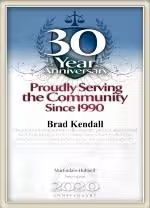
Navigating Long-Term Care in Kansas City
How to Choose the Safest Home for Your Aging Loved One
At Kendall Law Group, we recognize the emotional and practical challenges of this decision. As seasoned Kansas City Nursing Home Neglect and Abuse Attorneys, our role extends beyond legal advocacy. We are committed to assisting you in this important process, offering guidance to ensure you make thoughtful, compassionate choices for the care of your loved one. Allow us to help guide you toward securing a safe and caring environment for those who mean the most to you.
Long-Term Care, What Are the Options?
In both Kansas and Missouri, there are several types of long-term care facilities available, each designed to meet different levels of care and lifestyle preferences for seniors. The primary types include:
- Nursing Homes: Provide 24-hour supervised care with meals, activities, and health management. Suitable for seniors with chronic health conditions requiring constant medical care and assistance with daily activities.
- Assisted Living Facilities: Offer a semi-independent environment with assistance in daily activities like bathing, dressing, and medication management. These facilities typically provide meals, housekeeping, and various social activities.
- Residential Care Facilities: Similar to assisted living, these facilities offer a smaller, more home-like environment and provide personal care and assistance with daily living activities.
- Memory Care Units: Specialized facilities or units within larger facilities that cater to individuals with Alzheimer’s, dementia, and other memory impairments, offering structured activities and secure environments.
- Adult Day Care Centers: Provide care and social interaction for seniors during daytime hours, ideal for those living with family members who work during the day.
- Continuing Care Retirement Communities (CCRCs): Offer a spectrum of care from independent living to assisted living and nursing home care, allowing residents to transition to different levels of care as needed without changing their living environment.
- Intermediate Care Facilities for Individuals with Intellectual Disabilities (ICF/IID): These facilities provide long-term care for individuals with intellectual disabilities, offering personal care, and developmental and rehabilitative services.
- Home Health Care Services: While not a facility, home health care services are crucial in the long-term care spectrum, providing medical and personal care services in the individual’s home.
- Hospice Care: Provides compassionate end-of-life care, either in specialized facilities or in the home, focusing on comfort and quality of life for terminally ill patients.
Each type of facility or service offers different levels of care and environments, catering to the varied needs and preferences of aging seniors. Seniors and their families need to consider the individual’s health needs, personal preferences, and financial situation when choosing the appropriate type of long-term care.
What Are the Risks?
Long-term care, while essential for many aging individuals, involves risks that must be carefully considered. One of the primary risks is the quality of care. Despite rigorous standards and regulations, not all facilities provide the same level of care. Instances of neglect, abuse or inadequate medical attention are concerns that can have serious repercussions on the health and well-being of your loved one. This is particularly critical for residents with complex medical conditions or cognitive impairments, such as dementia, who are more vulnerable and heavily reliant on caregivers for their daily needs.
Another significant risk is the financial burden of long-term care. The costs associated with nursing homes, assisted living facilities and home health care services can be substantial and are often underestimated by families. Many people are unprepared for these expenses, which are not typically covered by Medicare or standard health insurance policies. This financial strain can impact not only the individual requiring care but also their family members, who may need to contribute to or completely cover these costs. Additionally, the emotional and psychological impact on both the care recipient and their family members should not be underestimated. The transition to a long-term care setting can be challenging, often accompanied by feelings of loss of independence, loneliness, and difficulty in adjusting to a new living environment.
These risks underscore the importance of thorough research and careful planning when considering long-term care options. Individuals and their families must explore different types of care, understand the costs involved, and assess the quality of care provided by various facilities. Furthermore, considering long-term care insurance or other financial planning strategies is advisable to mitigate the financial risks associated with long-term care.
How Are Nursing Homes Ranked?
In both Kansas and Missouri, nursing homes are evaluated and ranked based on several measures that aim to ensure the safety, quality and effectiveness of the care provided to residents. These evaluations and rankings are conducted by The Kansas Department of Health and Environmental Services or the Missouri Department of Health and Senior Services, and the Centers for Medicare & Medicaid (CMS), depending on which state the facility is located. Rankings are based on the following:
- Quality Measures: Nursing homes are assessed on various quality measures such as the prevalence of pressure ulcers, the use of restraints, the rate of hospital readmissions, and the overall health of residents. These measures are often reported publicly to help individuals make informed choices.
- Staffing Levels: Adequate staffing is crucial for providing quality care. Measures such as the ratio of staff to residents, qualifications of staff members, and the consistency of caregivers are considered.
- Resident and Family Feedback: Surveys and feedback from residents and their families are considered. This includes satisfaction with care, communication with staff, and overall living experience.
- Health and Safety Standards Compliance: Compliance with health and safety standards is a critical measure. This includes proper medication management, adequate infection control, and ensuring resident safety.
- Certification Status: The Centers for Medicare & Medicaid Services (CMS) provide certification for nursing homes that meet certain criteria. The CMS rating system, which includes a star rating, is a commonly used tool for assessing the quality of nursing homes.
- Incident Reporting and Response: The frequency and severity of incidents such as falls, injuries, and abuse, as well as the nursing home’s response to these incidents, are important measures.
What is the Medicare Star Rating System?
The Medicare Star Rating system is a critical tool for evaluating the quality of health care services provided by Medicare Advantage (MA) plans and prescription drug plans (PDPs). Developed by the Centers for Medicare & Medicaid Services (CMS), the system is designed to help beneficiaries compare plans based on quality and performance.
The star ratings are updated annually and range from one to five stars, with five being the highest score. These ratings are based on several performance indicators, including health outcomes, customer service, plan responsiveness, patient satisfaction, and the management of chronic conditions for MA plans. For PDPs, the ratings consider factors such as drug safety, accuracy of drug pricing, and customer service.
One of the unique aspects of the star rating system is its focus on outcomes rather than just processes. This means that plans are assessed not only on whether they provide certain services but also on the results of those services. For instance, a plan might be rated on how well it manages patients’ blood pressure or blood sugar levels, rather than just whether it offers blood pressure screenings or diabetes management programs.
The ratings are calculated using data from a variety of sources, including healthcare providers, health plans, and member satisfaction surveys. This comprehensive approach ensures that the ratings provide a well-rounded view of a plan’s performance.
For Medicare Advantage plans, there’s an additional focus on preventive services like screenings, vaccines, and annual wellness visits. The rationale is that preventive care can lead to better health outcomes and lower costs in the long run.
It’s important to note that star ratings are not the only factor to consider when choosing a Medicare plan. Coverage details, out-of-pocket costs, and a network of providers are also crucial. However, the star rating system is a valuable guide that can help beneficiaries make more informed decisions about their Medicare coverage.
Beneficiaries can find the star ratings for Medicare Advantage and prescription drug plans on the Medicare Plan Finder on the Medicare.gov website. This tool allows users to compare plans in their area and see how they stack up against one another in terms of quality and performance.
What is the Special Focus Facility (SFF) Program?
The Special Focus Facility (SFF) Program is a critical initiative in the United States aimed at improving the quality of care in nursing homes and long-term care facilities that have a history of serious quality issues. It is overseen by the Centers for Medicare & Medicaid Services (CMS), a federal agency within the United States Department of Health and Human Services.
The primary objective of the SFF Program is to identify and closely monitor nursing homes that consistently fail to meet required federal standards for patient care and safety. These facilities are often referred to as “Special Focus Facilities.” The designation is significant because it signals that these facilities have more problems than other nursing homes (higher number of deficiencies, more serious problems than most other facilities, and a pattern of serious problems that has persisted over a long period).
Once a nursing home is designated as an SFF, it undergoes more frequent inspections, more rigorous scrutiny, and a range of potential enforcement actions if it fails to improve. These actions may include fines, denial of payment for new admissions, or termination from Medicare and Medicaid programs. The increased oversight is designed to ensure these facilities make necessary improvements to meet the standards of care required by federal regulations.
The program also serves an informative purpose for the public. CMS publishes a list of SFFs, updated periodically, to help individuals and families make more informed decisions about long-term care. This transparency is crucial as it allows the public to identify which nursing homes have had persistent issues with care quality.
However, it’s important to note that being placed on the SFF list is not necessarily a permanent designation. Facilities that demonstrate significant improvements in quality of care can graduate from the program. Conversely, those who fail to make necessary improvements may face more severe penalties. The goal of the SFF Program is not to penalize facilities, but to encourage and foster improvement in care quality, ensuring the health and safety of residents in these facilities.
Kansas City Long-Term Care Facilities: A Comparison
When comparing options for long-term care facilities in Kansas City, there are some key factors you should consider:
- Quality of Care – investigate the staff-to-resident ratio, the qualifications and training of facility staff, and the availability of medical staff on-site. The Medicare website offers a nursing home comparison tool, which includes criteria such as health inspections, staffing and quality of resident care. These metrics can provide valuable insight into how well a facility is managed and the level of care the residents receive.
- Facility Inspections and Compliance – Investigate the facility’s compliance with state and federal regulations.
- Services and Amenities – Some facilities may provide basic care, while others offer extensive services like rehabilitation, memory care or specialized medical treatment.
- Cost and Insurance – Understanding the pricing structure, what is included in the cost and whether the facility accepts insurance or Medicaid can impact the decision-making process.
- Resident and Family Reviews – Feedback from current residents and their families can provide invaluable insights into the day-to-day operations and atmosphere of a facility. Websites like SeniorAdvice.com offer reviews and ratings for various long-term care facilities in Kansas City.
- Location and Proximity – Consider the facility’s proximity to family and medical facilities and whether the area suits the preferences of your loved one.
It’s always a good idea to schedule a visit to any prospective facilities.
Local Facilities Overview
According to Medicare’s Care Compare website, the following local facilities have been recently cited for abuse:
- Parkview Healthcare Center
- The Bishop Spencer Place, Inc.
- Parkway Health Care Center
- Highland Rehabilitation & Health Care Center
- Gregory Ridge Health Care Center
- Medicalodges Post Acute Care Center
- Hidden Lakes Care Center
- Carmel Hills Wellness & Rehabilitation Center
- The Rehabilitation Center of Independence
- Riverside Nursing & Rehabilitation
- Tiffany Springs Rehabilitation & Health Care Center
- Infinity Park Post-Acute Rehabilitation Center
- Life Care Center of Grandview
- Bonner Springs Nursing & Rehab Center
- Sunrise Nursing & Memory Care
Additionally, the following local facilities are un-ranked on Medicare’s Care Compare website due to a history of serious quality issues and are now subject to more frequent inspections, higher violation fines and potential termination from Medicaid and Medicare as part of the Special Focus Facility (SFF) Program:
- Liberty Health and Wellness
- Bridgewood Health Care Center
- Riverside Nursing & Rehabilitation Center
- Levering Regional Health Care Center (Hannibal, MO)
The following have recently graduated from the SFF Program:
- Life Care Center of Andover (Andover, KS)
- Overland Park Rehabilitation And Healthcare
Infinity Park Post-Acute And Rehabilitation Center in Overland Park, Kansas is no longer participating in the Medicare and Medicaid Program.
2023 Candidates for the SFF Program Include:
- Infinity Park Post Acute And Rehabilitation Center
- Kenwood View Healthcare and Rehabilitation Center (Salina, KS)
- Medicallodges Post Acute Care Center
- Riverbend Post Acute Rehabilitation
- Avalon View Health and Wellness
- Meadow View Health & Rehabilitation (Harrisonville, MO)
- Life Care Center of Brookfield (Brookfield, MO)
Read more on the SFF Program HERE.
Helpful Resources
| Kansas | Missouri |
| Medicare Nursing Home Compare: This tool allows you to compare the quality of nursing homes based on health inspections, staffing and quality measures. | |
| Mid-America Regional Council – Area Agency on Aging: Provides services to help older adults avoid or delay nursing home care, including home-delivered meals and in-home services. | |
| Kansas City Vet Center: Provides benefits assistance for veterans, including support for covering nursing home costs. | |
| Caring.com: Lists the best nursing homes in Kansa City, KS, offering detailed information on each facility, including reviews and ratings from residents and their families. | Missouri SHIP: Statewide program that provides free health insurance options counseling for Medicare. |
| Kanas Legal Services: Offers free legal advice for seniors on issues such as estate planning, living wills and power of attorney. | Missouri Department of Health and Senior Services: Provides information about the inspection and regulation of long-term care facilities in Missouri. |
| Kansas Health Care Association (KCHA): Nonprofit offering services for seniors in need of long-term nursing care, including health screenings, social activities and specialized care services. | SeniorAdvice.com: Offers reviews and information on various nursing homes and senior care facilities in Kansas City, Missouri. |
| Kansas Advocates for Beter Care (KABC): Provide up-to-date information on the performance of long-term care facilities in Kansas to help you make informed decisions with direct comparisons and facts. | Legal Aid of Western Missouri: Offers free legal assistance to seniors, particularly around issues of nursing home care. |
| Kansas Long-Term Care Ombudsman Office: Advocates for person-centered approaches in long-term care facilities and helps resolve complaints and issues on behalf of residents. | Seniorly: Platform that ranks assisted living facilities in Kansas City, Missouri, providing an overview of each facility, its services and amenities. |
| Johnson County Kansas – Housing and Long-Term Care: Offers information on various housing and long-term care options in Johnson County, including affordable housing options and support for those in transition. | Missouri Care Options: Offers insights into different nursing homes and care options available in Missouri, including links to useful resources and contact information for further inquiries. |
| Promoting Excellent Alternatives in Kansas (PEAK): Administered by the Kansas Department for Aging and Disability Services (KDADS), focuses on quality improvement through person-centered care in Kansas nursing homes. | Missouri Ombudsman Program: Provides advocacy and support for residents of long-term care facilities, ensuring their rights are preserved and respected. |
| Kansas Medicaid Long-Term Care Programs: Provides information on Medicaid long-term care benefits in Kansas, including eligibility criteria and information on available programs. | Show Me Long-Term Care in Missouri: This resource allows users to find out how licensed Missouri long-term care facilities performed in their last inspections. |
Kansas City Nursing Home Neglect & Abuse Attorneys
If your loved one has experienced abuse or neglect in a nursing home or assisted living facility, there may be other legal options to hold the facility accountable. In addition to reporting abuse and neglect to the proper authorities, you may also want to consult with a Kansas City Nursing Home Neglect and Abuse Lawyer who is experienced in litigation against long-term care facilities. Cases involving serious personal injury or wrongful death can be brought against the facility, depending on the circumstances.
More than most areas of law, the experience level of a lawyer matters in cases against medical facilities. Many states have adopted regulations that apply to the operation of these facilities, and they are complicated and intricate. In addition, Missouri and many other states classify cases involving injury and wrongful death in these facilities as medical malpractice cases, which have their own unique rules and deadlines.
The team of skilled Kansas City Nursing Home Neglect and Abuse Attorneys at Kendall Law Group have the experience, knowledge and aggressive approach to handle cases involving neglect and abuse.
Contact us today for a free, confidential consultation by calling (816) 531-3100






